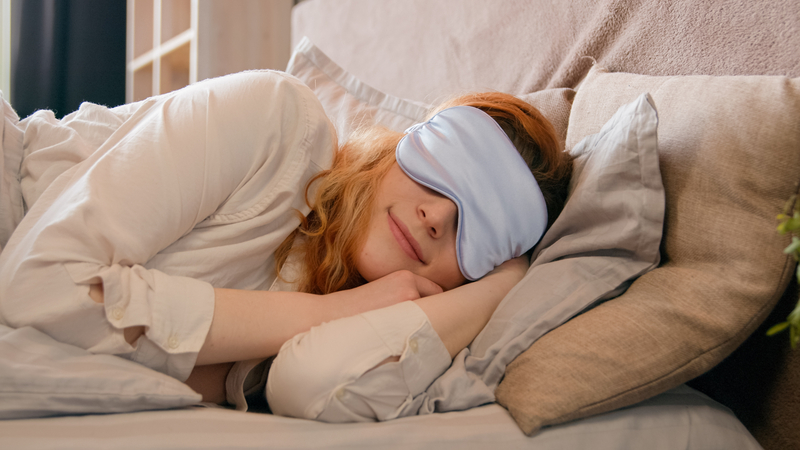In our fast-paced world filled with screens, stress, and irregular daily schedules, getting a good night’s sleep can sometimes feel elusive. However, improving your sleep is achievable with some deliberate lifestyle adjustments and habits. To making sleeping a little easier for you, here are 15 well-documented tips to sleep better at night that will help ensure you wake up refreshed and ready to take on your day.

1. Establish a Consistent Sleep Schedule
One of the most effective tips to sleep better at night is to go to bed and wake up at the same time every day—even on weekends. Consistency reinforces your body’s sleep-wake cycle and can help you fall asleep more quickly and enjoy deeper sleep.
2. Create a Relaxing Bedtime Routine
Transitioning to bedtime with a relaxing routine signals your body it’s time to wind down. Activities like reading, taking a warm bath, or practicing gentle yoga can significantly improve your ability to sleep better at night.
3. Optimize Your Sleep Environment
Make your bedroom a sleep-inducing environment. This means cool, dark, and quiet. Invest in blackout curtains or blinds to limit light exposure, ensure your bedding is comfortable, and consider using earplugs or white noise machines to block out disruptive sounds.
4. Watch What You Eat and Drink
Avoid heavy or large meals within a couple of hours of bedtime. Feeling stuffed or hungry can cause discomfort and keep you up. Also, limit caffeine and nicotine intake, as these stimulants can disrupt your sleep patterns.
5. Limit Naps
While napping can be a way to catch up on missed sleep, if you have trouble sleeping better at night, limit your naps or eliminate them altogether, especially in the afternoon.
6. Include Physical Activity in Your Routine
Regular physical activity can help you fall asleep faster and enjoy deeper sleep. Timing is important, though; exercising too close to bedtime can leave you too energized to sleep.
7. Manage Worries
Try to resolve your worries or concerns before bedtime. Jot down what’s on your mind and set it aside for tomorrow. Stress management might help reduce sleep difficulties, including techniques like mindfulness, deep breathing or talking to a counselor.
8. Use the Bed Only for Sleep and Intimacy
Don’t use your bed for work, watching TV, or scrolling through your phone. This helps strengthen the association between your bed and sleep, making it easier to wind down at night.
9. Control Exposure to Light
Melatonin is a naturally occurring hormone controlled by light exposure that helps regulate your sleep-wake cycle. Spend more time outside during daylight, and reduce light exposure from screens at least one hour before bed to help you sleep better at night.
10. Embrace the Dark
If possible, use blackout curtains to keep your room dark. This encourages melatonin production and can significantly improve your sleep quality.
11. Consider Sleep Aids Carefully
While sleep aids can be beneficial for short-term sleep issues, they’re not a cure for insomnia. If you decide to try sleep medication, consult your doctor for safety and efficacy. There are also many non habit forming natural sleep aids you can try before medication such as melatonin, chamomile tea and more.
12. Mind Your Sleep Position
Your sleeping posture can greatly affect how well you sleep at night. Experiment with different positions to find one that suits you best. While some people sleep best on their back, others find that sleeping on their side helps them to sleep better at night.
Changing my bed’s position in the room made a huge difference in the quality of my sleep. A big part of this solution was moving further away from sounds that were affecting my ability to go to and stay asleep.
13. Invest in Quality Bedding
Your mattress and pillows play a critical role in how well you sleep. Choose a mattress and pillows that support a comfortable sleeping position, and replace them when they are no longer supportive.
14. Check Your Room’s Temperature
The optimal temperature for sleep is between 60-67 degrees Fahrenheit (15-19 degrees Celsius). A room that is too hot or too cold can interfere with quality sleep.
15. Use Relaxation Techniques
Try relaxation exercises or meditation to calm your mind. Videos, soundtracks and apps that guide you through meditation or relaxation techniques can be very effective in helping you sleep better at night.
By implementing these tips to sleep better at night, you’re setting the stage for a restful sleep experience. Remember, sleeping well directly benefits your mental, emotional, and physical health. Start tonight, and you could be on your way to the best sleep of your life. Sweet dreams await!


